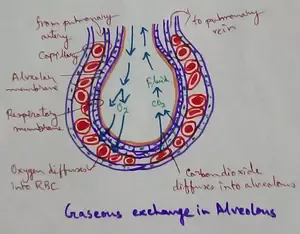Punctuation
We will learn where to use the appropriate punctuation marks and capital letters.
Capital letters:
(i) Capital letters are used as the first letter of every sentence.
For example:
We play cricket in the evening.
(ii) Capital letters are used as the first letter of a proper noun.
For example:
Britney Spears, India, Indian Ocean, Himalayas
(iii) Capital letters are used in the titles of books and films.
For example:
Harry Potter and Philosopher’s Stone (novel), Home Alone (film)
(iv) Capital letters are used as the first letter in abbreviations.
For example:
TV (Television), BBA (Bachelor of Business Administration)
(v) Capital letters are used to begin the names of family relations when they are used as substitutes for names.
For example:
Grandmamma and Grandpa live with us now.
End punctuation marks:
At the end of each sentence we need to put the end punctuation marks which include full stop, question mark and exclamation mark.
(i) The full stop (.), which is used to end a sentence that makes a statement.
For example:
We play cricket in the evening.
(ii) The question mark (?) is used at the end of a direct question.
For example:
What is your name?
(iii) An exclamation mark (!) expresses strong feelings or emotions.
For example:
What a lovely flower it is!
Comma (,):
(i) We use a comma to separate nouns in a list.
For example:
He bought vegetables, fruits and groceries
(ii) We use a comma before a direct quotation in a sentence.
For example:
Amy said, “I am scared of spiders.”
(iii) We use a comma at the end of a direct quotation if it comes in the beginning.
For example:
“I’m not feeling well,” said Ron.
Quotation mark (“ “):
We use quotation mark before and after a direct quotation (at someone’s direct words).
For example:
David said, “I want a glass of water.”
Note: In quotations, any other punctuation mark like a full stop (.), a question mark (?) or a comma (,) should always be placed within the quotation marks.
Apostrophe (‘):
(i) We use apostrophe to create possessive forms of nouns.
e.g., like, Sam’s brother, Shelly’s dress, Children’s room
For example:
I am riding John’s bicycle.
Note: In plural noun, if the noun ends in s, the apostrophe is added after the s and an additional s is not added.
e.g., boys’ room, Keats’ poems
(ii) We use apostrophe to show contractions (combining two words).
e.g., like, I am is written as I’m, is not – isn’t, you will – you’ll
For example:
Hello, I’m Tom.
English Grammar and Composition
Recent Articles
-
Formed Elements of Blood | Erythrocytes | ESR |Leukocytes |Neutrophils
Jan 15, 26 01:25 AM
Formed elements formed elements are constitute about 45 % of blood afeias haematocrit value packed cell volume mostly of red blood corpuscles and are of 3 types- erythrocytes, leukocytes and blood pla… -
What Is Plasma? | Blood Plasma | Proteins | Nutrients | Cholesterol
Nov 07, 25 10:29 AM
Blood is a mobile fluid which is a connective tissue and is derived from the mesoderm like cell any other connective tissue. Colour of blood is reddish and that flows inside the blood vessels by means… -
Disorders of Respiratory System | Tuberculosis | Pleurisy | Emphysema
Oct 28, 25 11:39 PM
Tuberculosis is very common disease and is caused by a type of bacteria called Mycobacterium tuberculosis. This disease causes different trouble in the respiration and infection of several parts of th… -
Regulation of Respiration | Respiratory Centres | Inspiratory Area |
Oct 14, 25 12:13 AM
Respiratory Centre is the area that controls the rate of respiration and it is observed to be located in medulla oblongata and pons. Respiratory Centre has the following will dispersed components like… -
Explain Transport of Gases | External Respiration | Tissue Respiration
Oct 09, 25 11:35 PM
In humans gaseous exchange is completed in the following ways the steps are - External Respiration or Breathing - Breathing in false taking in of Oxygen and giving out of carbon dioxide in the body. M…





New! Comments
Have your say about what you just read! Leave me a comment in the box below.